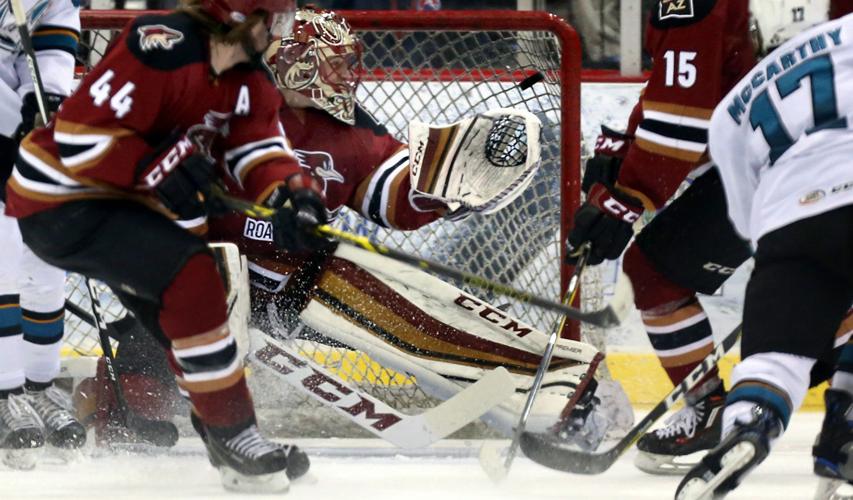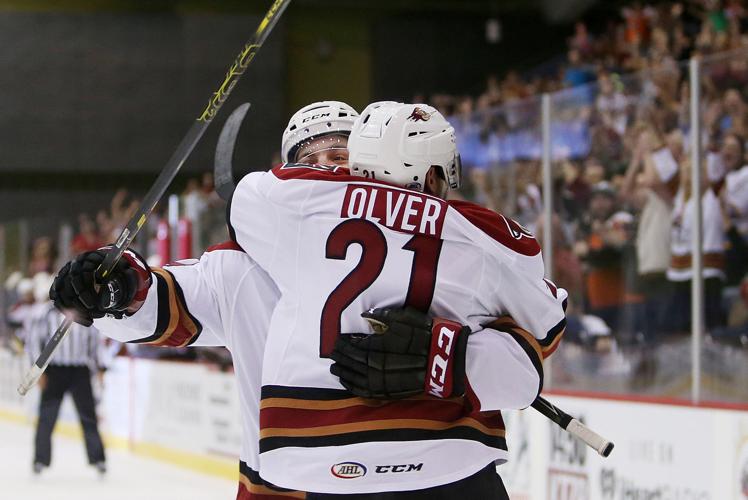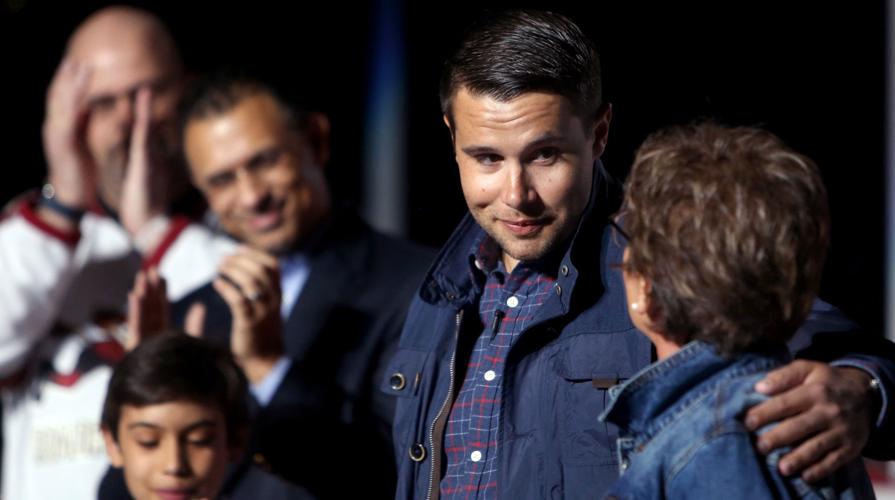Minor-league hockey involves so much roster turnover game to game, week to week and season to season that players don’t always build relationships.
The Tucson Roadrunners will close their inaugural season Saturday with a road game against the Stockton Heat. Afterward, the Roadrunners will return to the Old Pueblo, conduct exit interviews with the coaching staff and go their separate ways.
Tucson coach Mark Lamb plans to return to his home in Canada for a few weeks to “get out of the heat for a little bit.”
Eric Selleck is planning to do just the opposite: He’ll stick around in Tucson for a while to “enjoy the nice, sunny weather” before heading back to Ontario, Canada, for the offseason.
Co-captain Chris Mueller will head to his family’s lake house in West Bloomfield, Michigan, and then “see where the offseason takes us.”
The Roadrunners’ first season in Tucson ended without a playoff bid, even though the postseason looked like a near-certainty in the first half of the season.
Tucson’s roster will look vastly different next season. That’s just the way of the minor-league hockey world.
This year’s players will be bonded forever. They’ve been through too much together.
Captain Craig Cunningham collapsed on the ice before the Roadrunners’ Nov. 19 game against the Manitoba Moose and spent much of the next two months in a hospital. Cunningham’s cardiac event cost him part of one leg and the rest of a promising career.
It could have been much worse: Cunningham’s doctors at St. Mary’s Hospital and Banner-University Medical Center said modern medicine and the hockey player’s supreme physical condition kept him from death.
Mueller remembers that first week Cunningham spent unconscious in the hospital, calling it “one of the toughest weeks that any of us will ever go through.”
“I feel like as a team, we really leaned on each other being in that hospital together that whole week. We were there every single day,” Mueller said. “We would go to dinner, not to forget about Cunny, but to take a break, just sharing some laughs about Cunny and the days we’ve spent with him.
“It was so hard at times, seeing what he was going through.”
Selleck added: “It was a big eye-opener that it can happen to anybody. With the guy he was, how healthy he was, and the player he was. … It brought us closer, we battled through it together. We stuck together, and it was an emotional time, for sure.”
Tucson was 8-1-2 on the night Cunningham collapsed. From there, the Roadrunners lost five of their next six games. Things picked back up, and Tucson went 6-1 in the next seven games, but stumbled the rest of the way.
By the time Cunningham returned to Tucson Arena on March 25 for “Craig Cunningham Night” — he delivered the ceremonial opening puck drop — the Roadrunners were 24-27-7. Tucson won in overtime on Thursday at San Jose to improved to 28-31-8. They’re seventh in the American Hockey League’s eight-team Pacific Division.
No playoffs, but it’s not all bad.
“The feeling is positive,” Lamb said. “The situation was so good; the fans in Tucson were great. We just don’t have the depth. I really enjoyed it. I think it was good. I think the development of the players, that was accomplished, but as a coach you want more.”
Mueller was a star for the Roadrunners, finishing second in the AHL with 67 points on 48 assists and 19 goals; wing Christian Fischer led the team with 20 goals.
The Roadrunners dealt with injuries and depth concerns all season.
Selleck, 29, a seven-year veteran, felt the highs and lows as much as anyone. He scored the game-winning goal in the Roadrunners’ first home game, a come-from-behind 6-5 win against the Heat.
Selleck went on to miss 22 games because of injury. He will finish the year with his lowest point total in three seasons.
“We got off to a good start, then it crumbled before our eyes,” Selleck said. “We had some adversity. There’s a lot of things that happened on this team and a lot of guys coming into the lineup, but at the end of the day, there’s no excuses. We have to be better.”
For now, everyone will go their separate ways — nine players are from Canada, the rest from all over the United States.
Many of them won’t return to Tucson, at least not as part of the Roadrunners.
That’s the AHL.
“Hockey is a game; we do it for a living,” Lamb said. “But when you’re in the minors in Tucson, it’s not all about wins and losses.”
After everything that happened with this team, and with Cunningham, it’s more than that.
“To go through something like this and to see Cunny pull through and to see the kind of person he is: He’ll be a lifelong friend for me for sure,” Mueller said.
“All of us will stick together. A lot of times in pro hockey and the AHL, not a lot of guys stick together and you lose track. For what we’ve gone through — just outside of hockey what we’ve been through — we became really close.”






